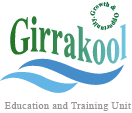5
NovemberFear? Not If You Use Drug Rehab Thai The Right Way!
Introduction:
Cocaine addiction is a critical general public health issue that includes widespread implications for people, households, and community in general. The addicting properties with this stimulant medicine allow it to be difficult to over come, causing devastating consequences for users in both the brief and long term. This report is designed to supply insights into cocaine addiction, its results, and prospective treatment plans.
The Range for Dararehab.Com the Problem:
Cocaine addiction was on the rise globally, impacting many people from all walks of life. The first attraction of this drug is based on its ability to cause thoughts of euphoria, increased energy, and heightened confidence. However, repeated usage often results in threshold, requiring higher amounts to attain the desired impact. This pattern of use can easily spiral uncontrollable, causing addiction.
Effects of Cocaine Addiction:
The actual and mental effects of cocaine addiction may be damaging. Physiologically, extended misuse of the medication can lead to aerobic complications, breathing issues, and injury to organs like the liver and kidneys. Psychological state problems like despair, anxiety, and paranoid psychosis are normal among those fighting cocaine addiction. The financial burden of such addiction are astronomical, as people prioritize obtaining the medication over meeting everyday requirements, leading to job reduction, bankruptcy, and strained relationships.
Fundamental Facets and Risk Elements:
Different aspects subscribe to the introduction of cocaine addiction. Socioeconomic condition, hereditary predisposition, and psychological facets particularly impulsivity and thrill-seeking behavior all are likely involved in increasing an individual's vulnerability to addiction. Also, experience of a supportive environment, familial history of substance abuse, and childhood upheaval can considerably heighten the possibility of cocaine addiction.
Treatment Plans:
Handling cocaine addiction calls for a comprehensive approach that integrates medical, mental, and personal interventions. Detox is oftentimes step one, permitting people to safely withdraw from the drug under health supervision. Medications might prescribed to manage detachment signs and minimize cravings. Cognitive-behavioral therapy (CBT) shows promising results, helping people identify triggers, develop dealing mechanisms, and change maladaptive habits of thinking and behavior.
Supportive sites like 12-step programs or team treatment are vital in cultivating data recovery and supplying continuous help. Holistic techniques that focus on lifestyle changes, anxiety decrease strategies, and alternate treatments like acupuncture or meditation are also being investigated to fit old-fashioned treatment options.
Protection and knowledge:
Prevention is an essential aspect in combating cocaine addiction. Community health campaigns that emphasize the risks of cocaine usage, its addictive nature, plus the potential consequences are necessary in curbing its prevalence. Schools and academic establishments should implement evidence-based substance abuse programs that instruct youthful people about the risks involving medication usage and instruct refusal abilities.
Summary:
Cocaine addiction remains a significant public health nervous about far-reaching consequences. The vicious pattern of addiction and its own harmful impacts on physical and mental health necessitate effective prevention initiatives, very early input, and extensive treatment plans. It is crucial that governing bodies, health care specialists, and communities interact to deal with this devastating epidemic and offer the required help for all experiencing cocaine addiction.

